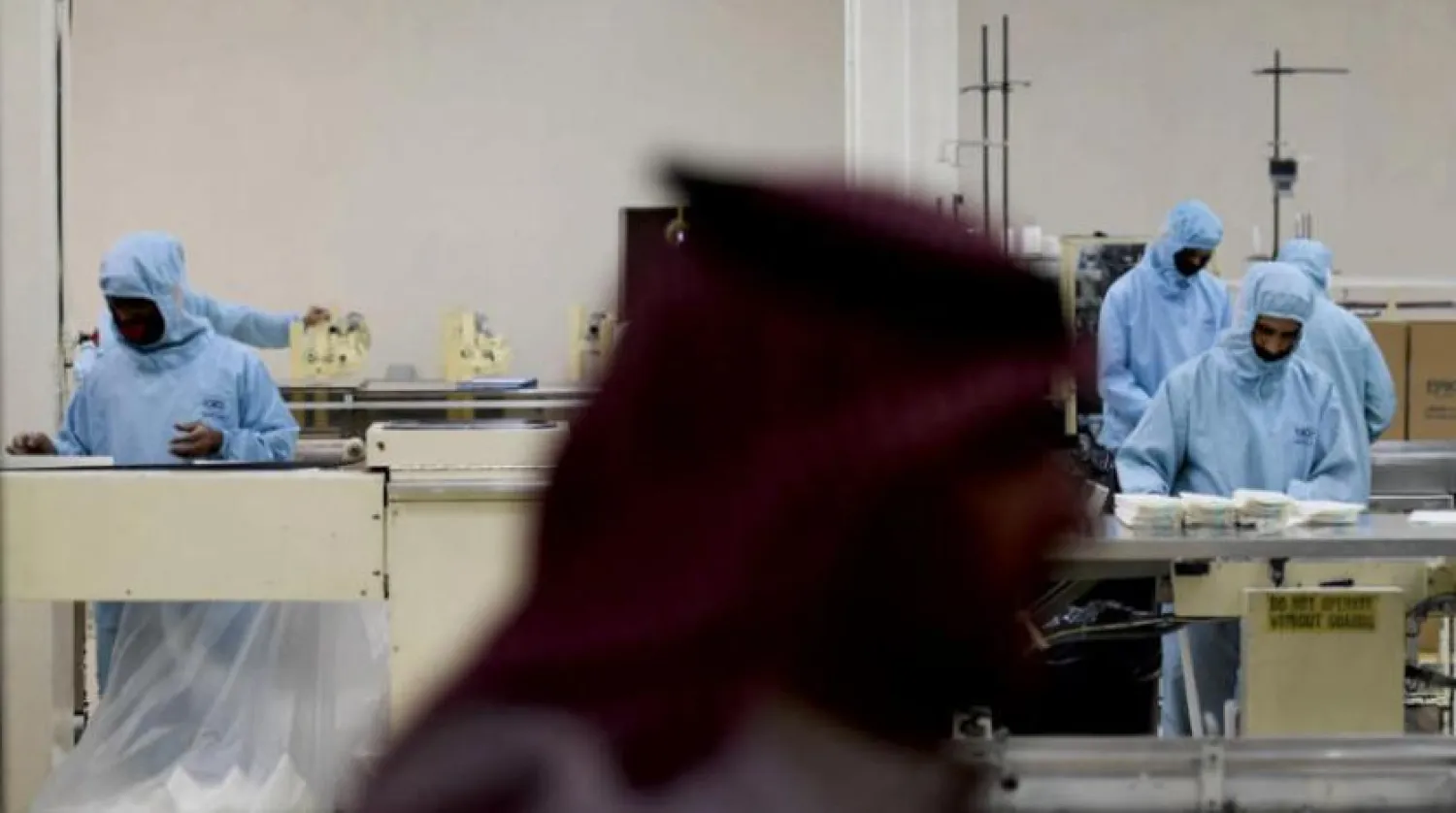The Saudi Authority for Industrial Cities and Technology Zones (MODON) revealed that over 300 factories specialized in food and health products are working in full capacity, adding that despite the coronavirus crisis, these factories received industrial investment requests from China and Korea to produce vital supplies.
Engineer Khaled Al-Salem, Director General of MODON, said that 310 Saudi factories are working at maximum production capacity. The 310 facilities include 290 food factories and 20 medical factories located in 35 different industrial cities supervised by MODON.
Salem stressed that production is taking place alongside the implementation of all health precautions in cooperation with the Ministry the health.
During a virtual conference, attended by Asharq Al-Awsat, Salem explained that factories do not face any production challenges.
Despite the virus crisis, the industrial investment environment in Saudi Arabia remains attractive to foreign investors.
Salem revealed that two investment requests were put in by China and Korea, and they involve the production of commodities relevant to the current virus crisis.
He demanded that Saudi industrial investors benefit from the current period by heading towards foreign markets. He pointed out that the health and food sectors were among the most prominent industrial opportunities that were popular with investors even before the coronavirus fallout.
More so, Salem confirmed that MODON is making sure that preventative measures are being adhered to in industrial cities, noting that the number of laborers was cut back by 40% and offices were closed.
Factories now maintain operations remotely and under intensive field health preventative measures.
“The coronavirus crisis, whose severe negative repercussions became apparent in many countries around the world, revealed to us that we have a significant industrial base that can be relied upon in times of crisis,” Salem said.
He pointed out that MODON went on to implement approved incentives to encourage factories to continue their activities.









